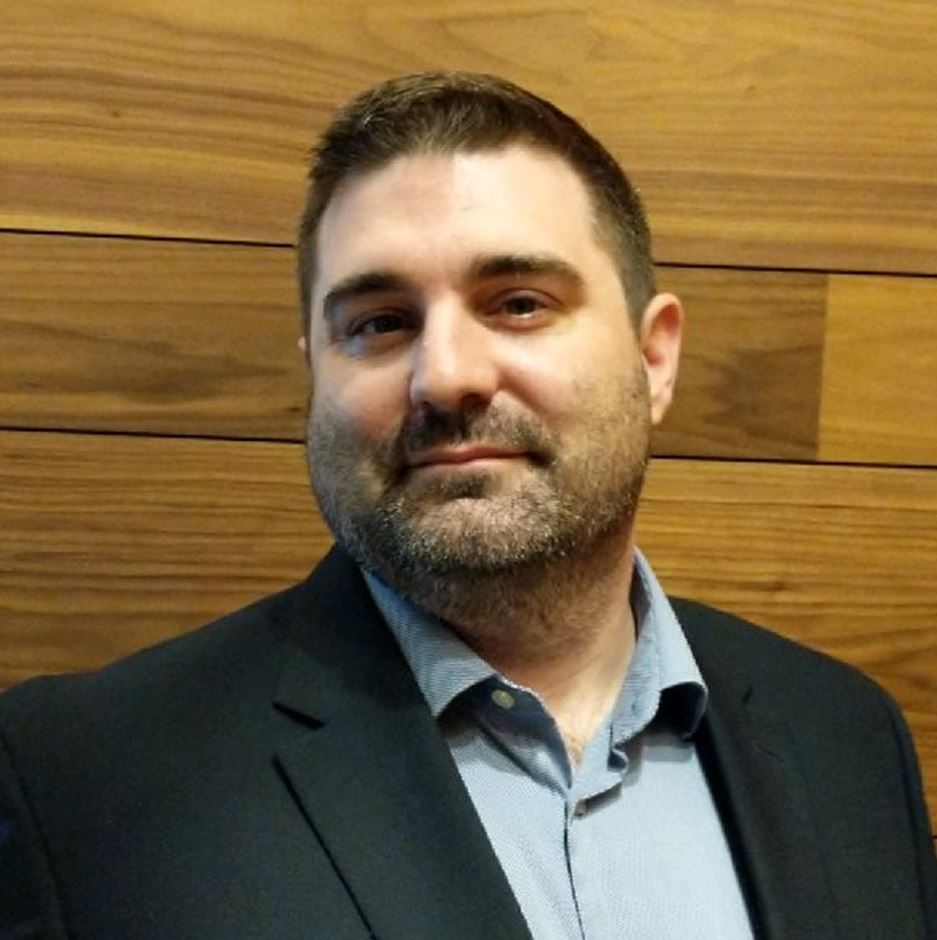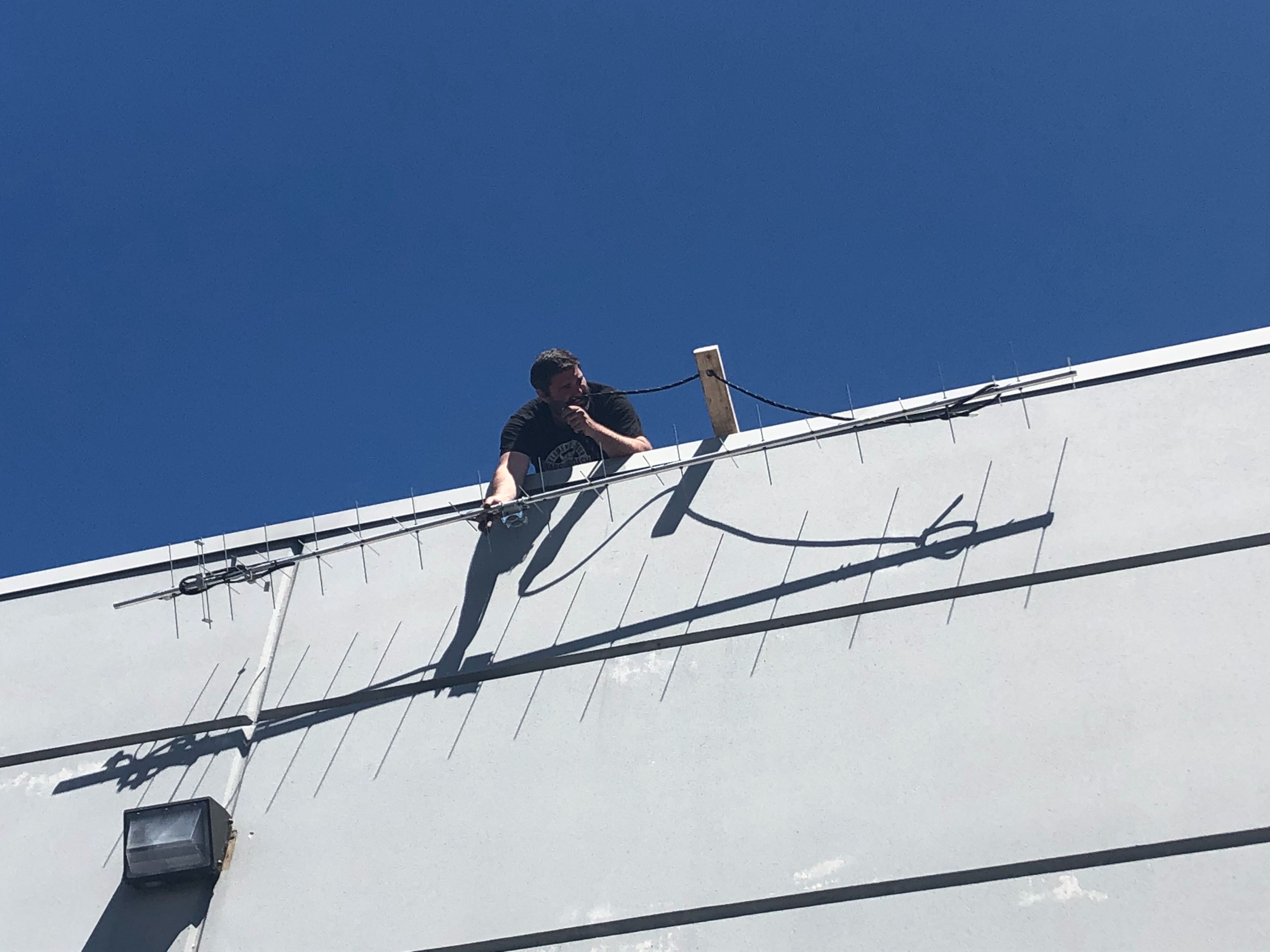
This month’s RBC Signals team member spotlight is on John Ames. John oversees daily ground station operations at RBC Signals
With a name like Ames, it’s easy to imagine John Ames being destined to join the space industry. His great-great uncle is Joseph Sweetwater Ames, the namesake of NASA Ames research center in Mountain View, CA. Having famous heritage didn’t mean his path in the satellite communications field was always smooth or straight, but certainly adventurous, no matter where in the world John was sent to improve satellite communications. John was born in California, but considers Washington State home having moved there when he was only one year old. John picked up a love of computers and technology as a child from his father, who worked in Information Technology for the State of Washington. He also knew he wanted to be involved in the space industry early on and always gravitated towards engineering. He obsessed over Legos – but only the sets having to do with space. John’s career path in space began just out of high school after deciding to join the Army. After taking the Army placement test and doing very well on the technical section, he was given three options: military intelligence, spectral image analysis, or satellite communications. From the beginning, John had his sights set on the commercial potential of satellite communications and chose the field as his start in the Army. After completing basic training and Advanced Individual Training (AIT), he was selected for additional training in satellite network management, granted a high level security clearance and sent to work at the Pacific Theater Wideband Satellite Communications Operation Centers (WSOC), the military version of a network operations center (NOC,) in Okinawa, Japan. John dove into the military mentality of “let’s enjoy ourselves but let’s always get the mission done” learning to operate and maintain X, Ku and Ka-band ground stations from less than a meter up to 20 meters, working with satellite systems monitoring equipment and earning several US Army awards for actions taken during some critical satellite events, all while also enjoying life in Okinawa, picking up scuba diving and triathlons. After three years working in the satellite control facility in Okinawa, John was transferred to Landstuhl, Germany where he was promoted to the Operations NCO (the day to day operations manager) of the European and West Asian Theater WSOC. Among his roles, he was also the Cybersecurity NCO, responsible for the satellite’s and ground backhaul network’s security protocols and encryption.  After serving and gaining 9 years of experience in satellite operations, John hung up his uniform but continued to support his Army mission by going to work for GlowLink, makers of the spectrum monitoring systems used by the Army, where he provided direct support to all of the WSOCs from Colorado Springs. He was quickly promoted and moved to company headquarters in Mountain View, allowing him an opportunity to also pursue an aerospace engineering degree from San Jose State. Since most of the department faculty at SJSU are adjunct, and also work at NASA Ames, it allowed the opportunity to work on real world scientific missions in class. John’s Army career and support roles post-Army allowed him to travel to 37 different countries. This helped John realize that Washington State was still home, and the place he wanted to be. After graduating SJSU, he decided to move back to the Seattle area, where he began volunteering for local space grassroots organizations such as Orbital Engineers and Space Entrepreneurs. Through these efforts, he was connected to Christopher Richins, CEO of RBC Signals. Before meeting Christopher, John remembers attending the NewSpace Conference in Seattle and listening to sessions about challenges facing the industry and thinking ‘why isn’t anybody providing satellite ground stations as a service?’ About 20 minutes after scribbling that thought down, Christopher got up to speak and explain that was the very mission of RBC Signals.
After serving and gaining 9 years of experience in satellite operations, John hung up his uniform but continued to support his Army mission by going to work for GlowLink, makers of the spectrum monitoring systems used by the Army, where he provided direct support to all of the WSOCs from Colorado Springs. He was quickly promoted and moved to company headquarters in Mountain View, allowing him an opportunity to also pursue an aerospace engineering degree from San Jose State. Since most of the department faculty at SJSU are adjunct, and also work at NASA Ames, it allowed the opportunity to work on real world scientific missions in class. John’s Army career and support roles post-Army allowed him to travel to 37 different countries. This helped John realize that Washington State was still home, and the place he wanted to be. After graduating SJSU, he decided to move back to the Seattle area, where he began volunteering for local space grassroots organizations such as Orbital Engineers and Space Entrepreneurs. Through these efforts, he was connected to Christopher Richins, CEO of RBC Signals. Before meeting Christopher, John remembers attending the NewSpace Conference in Seattle and listening to sessions about challenges facing the industry and thinking ‘why isn’t anybody providing satellite ground stations as a service?’ About 20 minutes after scribbling that thought down, Christopher got up to speak and explain that was the very mission of RBC Signals.

John can often be found on a roof working with antennas
John and Christopher realized that his background and experience were a great fit at RBC Signals. At RBC Signals, John manages day to day operations of active antenna systems and customer interface. John says “Working at RBC Signals has been a dream job – not only being able to use my experience, but also being able to stretch into areas I haven’t worked in before.” John learned early on that often small companies are usually the ones relied upon for getting things done, and has taken this viewpoint into his work at RBC Signals. Another important component of John’s work at RBC Signals is cybersecurity. Having spent so many years working in a government satellite communications facility, cybersecurity has always been at the forefront of his mind. After leaving the Army, John saw that the Department of Defense was starting to rely more on smaller, more nimble companies for services, and that maintaining security would be critical. Security is critical in an era where remote interfaces are common. This all adds up to John’s and RBC Signals’ belief that cybersecurity should be at the core – not just something that is layered on after the fact. With security at the core and John’s years of experience providing front line service, he is dedicated to ensuring that customers have secure access to RBC Signals’ networks at a moment’s notice.
When John isn’t working, he enjoys spending time on his sailboat, especially with his daughter.

While John oversees ground stations at RBC Signals, here he can be seen “overseaing” his sailboat
